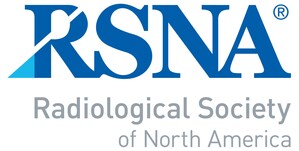
Women with Dense Breasts Welcome Additional Screening
CHICAGO, Nov. 27, 2012 /PRNewswire-USNewswire/ -- A survey of women undergoing routine screening mammography found that many of them would be interested in pursuing additional screening tests if notified they had dense breast tissue, despite the possibility of false positives, invasive procedures, and out-of-pocket costs, according to a study presented today at the annual meeting of the Radiological Society of North America (RSNA).
"Our study highlights the need for patient education regarding breast density," said Jafi Lipson, M.D., assistant professor of radiology at Stanford University School of Medicine in Stanford, Calif.
Recent studies have found that dense breast tissue is a strong independent risk factor for breast cancer. Breasts are composed of fat and fibroglandular tissue. Dense breast fibroglandular tissue appears white on a mammogram. Abnormalities and tumors also appear white on mammograms, causing them to be difficult to spot in dense breasts until the cancers are much larger and possibly in advanced stages.
"We hope this study raises awareness that dense breast tissue is a risk factor for breast cancer and that alternative technologies, including automated whole-breast ultrasound and contrast-enhanced mammography, are available to aid in screening women with dense breasts," said Haatal B. Dave, M.D., M.S., resident physician at Yale University School of Medicine in New Haven, Conn.
For the study, Drs. Lipson and Dave surveyed 105 women undergoing routine screening mammography at an outpatient radiology clinic. The women were asked if they knew their breast density and were informed about the association between higher breast density and increased risk of breast cancer. Women were then asked a set of questions about whether or not they would be interested in additional screening tests, such as automated whole-breast ultrasound or contrast-enhanced mammography, if they found out that they had dense breasts.
Of the 105 women surveyed, 76 percent were unaware of their breast density. Forty-two percent of the women had dense or extremely dense breast tissue. A majority of the surveyed women showed interest in the additional screening, despite the chance of increased false positives, invasive biopsy procedures and potential out-of-pocket expense.
Dr. Dave noted that educating the general public about the association between breast density and breast cancer risk is important, but that supplemental screenings are a matter of some debate in the medical and political realms. She added that many states do not require insurance companies to cover the cost for supplemental tests due to the lack of evidence of their mortality benefit.
Currently five states, including Connecticut, New York, Texas, California and Virginia, have passed bills that require radiologists to inform women of their breast density if they are found to have dense breast tissue. In 2011, a similar bill was introduced on a national level, and more than 10 other states have legislation pending. Only Connecticut and New York require health insurance companies to cover the cost of supplemental screening exams for women with dense breast tissue.
Note: Copies of RSNA 2012 news releases and electronic images will be available online at RSNA.org/press12 beginning Monday, Nov. 26.
RSNA is an association of more than 50,000 radiologists, radiation oncologists, medical physicists and related scientists, promoting excellence in patient care and health care delivery through education, research and technologic innovation. The Society is based in Oak Brook, Ill. (RSNA.org)
Editor's note: The data in these releases may differ from those in the published abstract and those actually presented at the meeting, as researchers continue to update their data right up until the meeting. To ensure you are using the most up-to-date information, please call the RSNA Newsroom at 1-312-949-3233.
For patient-friendly information on breast imaging exams, visit RadiologyInfo.org.
AT A GLANCE
- A survey of women undergoing routine annual screening mammography found that most women with dense breast tissue are interested in supplemental breast cancer screening exams.
- Dense breast tissue is a strong independent risk factor for breast cancer.
- Seventy-six percent of women surveyed were unaware of their breast density.
SOURCE Radiological Society of North America (RSNA)






Share this article